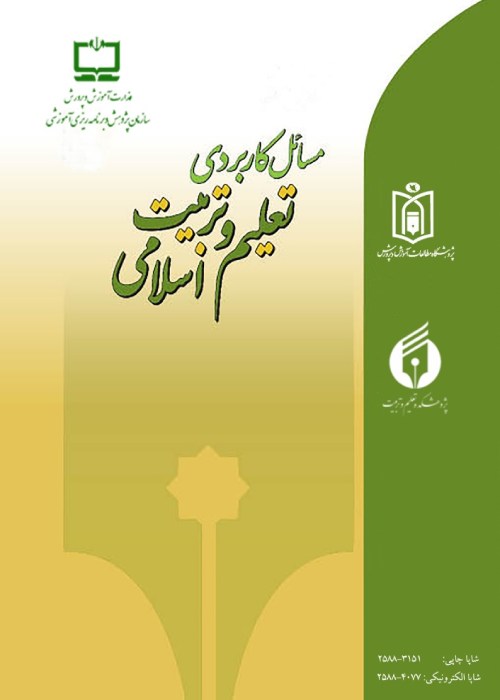The pattern of punishment based on the Quranic verses and Imam Ali's seerah educational organizations
One of the methods of the heavenly religions to train man and modify his course of action is "punishment". In professional and educational settings too, punishment is a strategy to modify the path of students and employees and to achieve organizational goals. Given that there are punitive mechanisms in educational and professional settings and the potential for harm, and regarding the lack of a comprehensive model for it, this study seeks to explain the objectives, principles, and methods of Islamic punishment, and to provide a model based on the verses of the Holy Quran and Imam Ali's words. The researchers used qualitative approach and thematic analysis method. The verses of the Holy Quran and the words of Imam Ali(PBUH) were used as research community. Therefore, verses and narratives about the objectives, necessities and methods of punishment were purposefully selected and studied as research samples. We used Quranic and hadith-related softwares to study the research literature. Research literature was organized with Citavi software and coded with MaxQDA software. In the process of thematic analysis, three types of coding were used: open coding, axial coding, and selective coding. In the process of analyzing the Quranic themes, valid exegeses such as Tafsir Nemuneh, Tafsir al-Mizan, and Tafsir Noor were cited. A review of the Quranic verses and the words of Imam Ali(PBUH) showed that the punishment mechanism has "objectives", "procedures and principles" and "multiple methods"; in addition, the unjust punishment may cause many disasters and harm. Some of the Islamic Punishment Principles are: balance in punishment; and the proportionality of punishment with the wrongdoing; avoiding out-of-stamina punishment; attention to wrongdoer's circumstances; punishment with sympathy and pity; avoiding punishment in anger mood; step by step punishment; beginning punishment with a mild degree; avoiding punishment after "expressing regret"; avoiding rushing into punishment; postponing punishment; avoiding early repetition of punishment; explaining the reason of punishment; and instance of punishment. In order to prevent disasters and harms of punishment, it is necessary to instruct all directors and authorities the theoretical bases of "punishment procedures and principles" and "types of effective and proportionate punishment" as well as workshop and practical training on how to punish.
- حق عضویت دریافتی صرف حمایت از نشریات عضو و نگهداری، تکمیل و توسعه مگیران میشود.
- پرداخت حق اشتراک و دانلود مقالات اجازه بازنشر آن در سایر رسانههای چاپی و دیجیتال را به کاربر نمیدهد.




